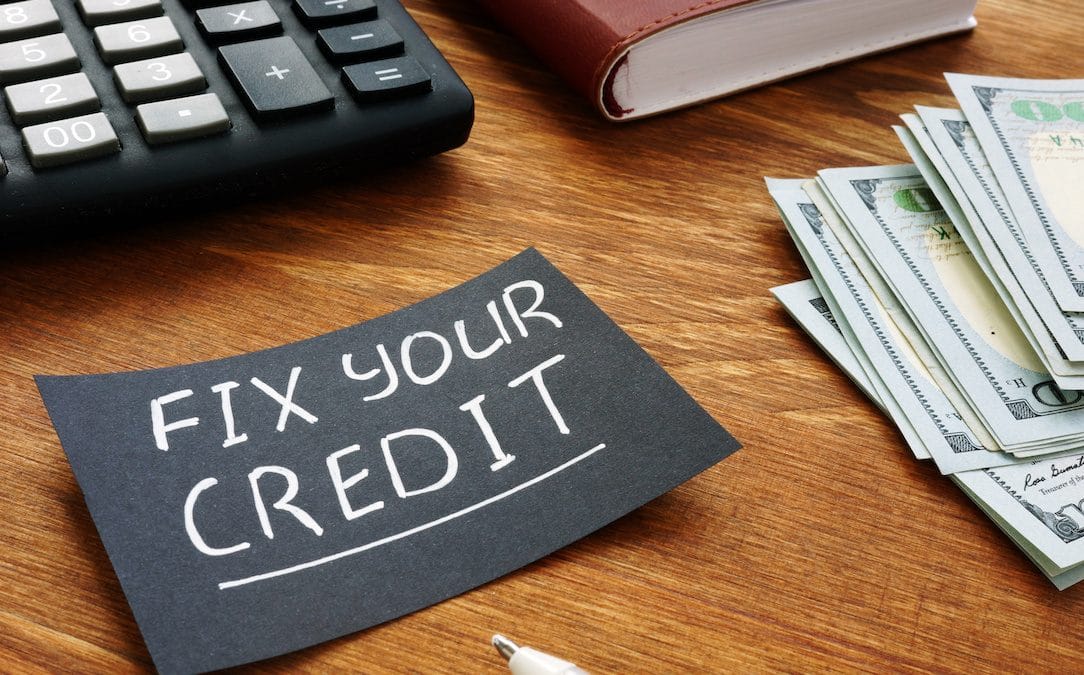Unfortunately, there are no get-rich-quick schemes or loopholes that will help improve your credit overnight. There are steps you can take to improve your credit over time. Here are seven steps you can take right away to begin fixing your credit.
Fixing Credit On Your Own — Know Your Exact Credit Score
Before you embark on this journey towards better credit, request a copy of your credit report. We suggest you pull your report from Experian, Equifax, and TransUnion, the three nationwide credit reporting bureaus. You can pull your reports for free once a year from these sites. The Federal Trade Commission has warned consumers to beware of scam websites with deceptive claims to offer free reports. We suggest using annualcreditreport.com, it is the only authorized website. It’s important to get your report here because it will be accurate and reliable, which is critical when dealing with your personal information. You can also call an FTC Consumer Information number 1-877-322-8228 for help with getting your reports.
Your credit report will include information on:
- Where you live
- Bill payment history (delinquencies and on-time payments)
- Legal information (if you’ve been sued or filed for bankruptcy)
- Types of accounts
- Balances of open accounts
To access your free report you will need to provide your name, address, Social Security number, and birthdate. You may be asked validation questions to help protect you from identity theft.
The credit reporting bureaus will share this information with creditors and other businesses when they try to determine your creditworthiness. Typically, this happens when you’re looking to buy a car, get a mortgage, or when seeking employment.
Fixing credit on your own starts with getting a copy of your credit report to check for errors. Errors affect your credit score, so knowing they’re on your report is the first step to disputing them. Getting your report will also help protect you from identity theft. Identity theft is when someone impersonates you using your personal information to commit fraud.
Dispute Errors
Once you get your credit reports, here is how to use them to your advantage:
- Look at your personal information. Make sure the spelling of your name is correct along with all numbers in your address and phone number.
- Review the list of debts, credit cards, and loans. Keep track of any errors you see on the list by making a copy of your report and highlighting discrepancies.
- Next, gather information like bank statements that can help you dispute errors. The credit bureaus need proof to successfully remove the errors from your report.
- Write a letter to the specific reporting bureau and show the error. Explain the error and why you’re disputing it. Be sure to include your copy with the highlighted errors and the supporting documents that support your dispute. They then have to respond to you within 30 days.
Reporting disputes is a great way to repair your credit. Removing just one negative item from your credit history can make a surprisingly big improvement to your score.
Avoid Spending More Than You Make
Once you have disputed all you can on your credit history, it’s time to look at your budget. To repair your credit score, you’ve got to make sure that you’re not spending more than you make each month.
Take the time to list your necessary expenses and develop a budget. Stick to your budget. Meanwhile, don’t apply for unnecessary credit.
Never Pay Bills Late Again
It’s simple, if you want to get a better credit score, pay your bills on time every month. If you have found yourself behind on bills, catch up on them as soon as possible. You won’t repair your credit score if you’re late paying bills.
Quit Max-Out Credit Cards
You should only spend on your credit cards what you can afford to pay back. Staying well under your credit limit will help your credit score. Maxed-Out credit cards on your credit report make you look like a careless consumer.
Don’t Apply for More Credit
While you’re trying to repair your credit score, don’t apply for new credit. When you apply for new lines of credit, new inquiries appear on your report. These will instantly lower your score, especially if your credit score is already considered poor.
Consider Not Paying Collections
If you have a collection on your credit report, it will be on the report for 7 years whether you pay it off or not. And in some cases, that 7-year clock will begin again when you pay off the collection. Keep in mind, some companies will settle for less than the full amount you owe if approached politely.
Commitment to Improve Your Credit
Fixing credit on your own requires that you stay motivated and committed to getting out of debt and improving your credit score so you can finally reach your goal of financial freedom. Once you begin to improve your credit score, don’t take on new debt.
Ready to Find Your Best Loan?
Compare Your Mortgage Options Quotes. Get Started Today.




